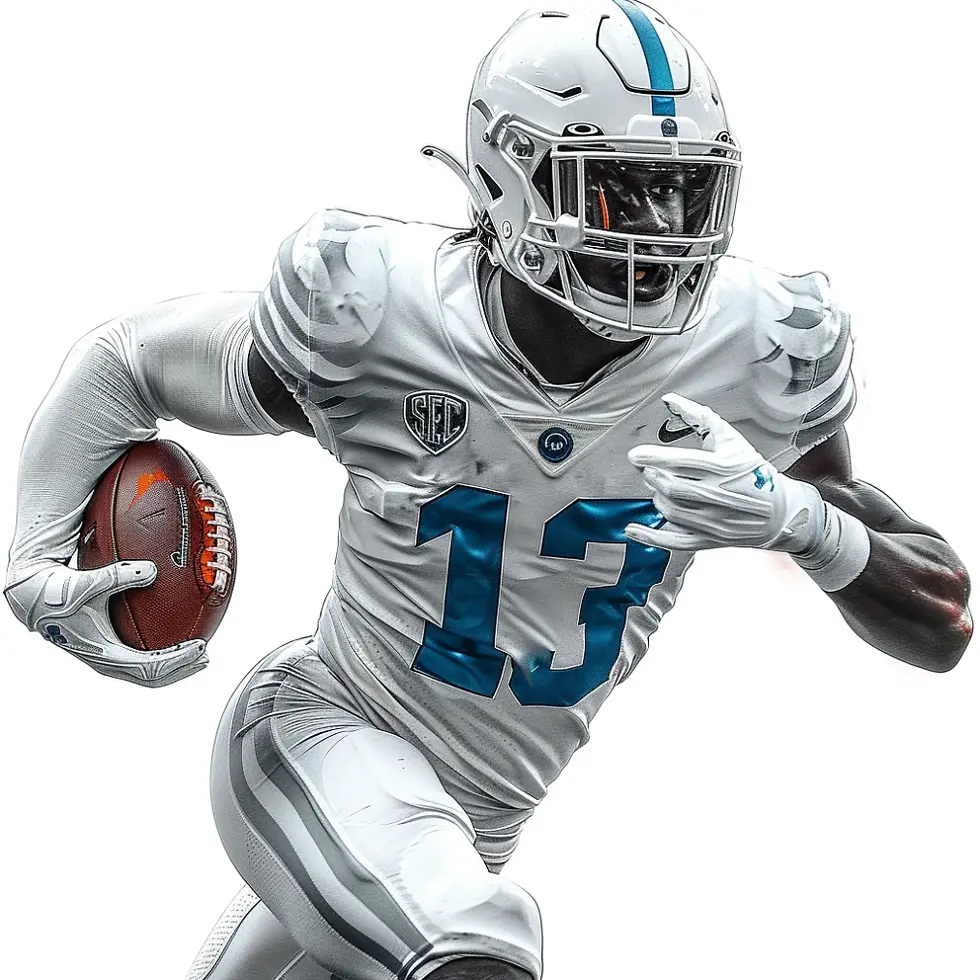Football “Explosiveness” Described Through Kinetic Energy
- Dominic Zanot

- Jan 16, 2024
- 2 min read
Football “Explosiveness” Described Through Kinetic Energy
Objects that are not in motion need energy to set them in motion.
As objects move, they carry energy with them. The energy that is carried with an object (mass) and speed (velocity) becomes kinetic energy. A heavier object has greater kinetic energy than a lighter object moving at the same velocity while an object moving with higher velocity has more kinetic energy than a slower object with the same mass.
This is physics and physics can be a helpful tool for scouts, personnel departments, coaches, players and even fans in American football.
Application Of Kinetic Energy To Football
At the snap of the ball, there is a sudden movement by all 22 players on the field. Each player carries kinetic energy with them. At some point, a collision will occur.
When two players collide, they will pass their kinetic energy to the opponent. Energy is then transferred from the player with more kinetic energy to the one with less kinetic energy. Whomever has more kinetic energy at collision moves forward and whomever has less moves backwards. Depending on the angle of impact, some players may even move sideways. Think of a player with more kinetic energy like a bowling ball striking players with less kinetic energy as the pins.
The sudden impact of collision and resulting energy transfer in football is what we often call “explosiveness”.
Developing/Scouting Kinetic Energy
There is no kinetic energy without motion and without motion, no kinetic energy. Therefore acceleration and velocity are NEEDS for successful energy transfers at collision.
Kinetic energy is a currency in football. Literally and figuratively. So, how do you train and demonstrate the ability to produce kinetic energy outside of playing football? How does a scout KNOW the kinetic energy capacity of a player?
One possible answer is…
Track & Field:
55/60m
55/60m Hurdles
100m
110m Hurdles
200m
400m
Long Jump
Triple Jump
High Jump
Shot Put
Discus
Javelin
High speeds, High Jumps, Far Jumps and Far Throws demand and demonstrate kinetic energy. Therefore, the better an athlete becomes at track & field, the more they PRACTICE producing MEASURABLE KINETIC ENERGY. In traditional football terms, this is MEASURABLE EXPLOSIVENESS.
When you hear of teams recruiting speed or the wonderful combination of size AND speed, they are truly recruiting KINETIC ENERGY. Remember, kinetic energy is a critical factor for movement at collision. Whichever football team creates the most forward movement usually wins.
Develop and recruit Kinetic Energy.
- Dominic Zanot
Zanot, a distinguished Colgate alumnus with a master's from Binghamton University and a Certified Strength & Conditioning Specialist, commands Athletics Westchester and serves as the director of speed performance at NextGen Prospect. His visionary leadership since 2005 in Westchester County track & field has secured numerous titles and elevated athletes to elite levels and international arenas. With the establishment of the Northeast Speed Summit and insightful contributions to NextGen Logic, Dominic's relentless pursuit of knowledge and innovation continues to propel the field of athletic performance forward. Discover the speed kings of high school and college football. Stay informed about the latest transfers with NextGen Logic, gain access to cutting-edge sports analytics and follow the journey of promising athletes. Join NextGen Logic now and get the inside track on rising stars.



